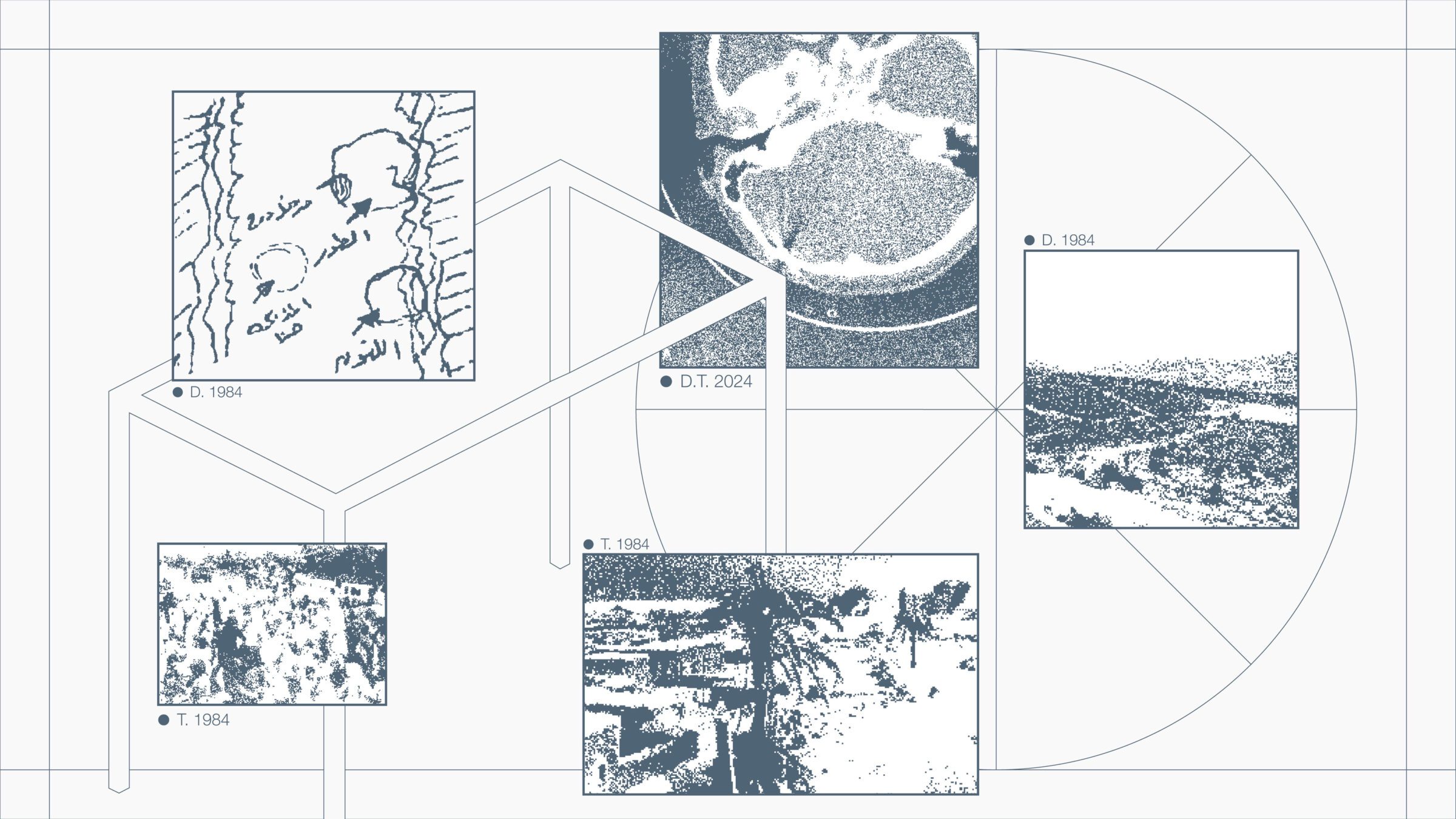- Academics
- Admissions
- Enrollment & Registration
- Research
- Academic & Creative Spaces
- Strategic Partnerships
- Our Impact
- Student Affairs
- Alumni
- About VCUarts Qatar
- Community & Continuing Education
NOTICE:
Amid the ongoing regional situation the university has moved to remote operations and public access to its premises are not available. Information on scheduled activities will be communicated to individuals directly.

Forensic Architecture – Palestine Projects: Al-Dawayima, Doctor Testimony, Tantura
August 28, 2025 - September 21, 2025
Saffron Hall Project Space
Free - Open invitation

The Gallery at VCUarts Qatar is pleased to present Forensic Architecture – Palestine Projects: Al-Dawayima, Doctor Testimony, Tantura.
Since its founding in 2010, Forensic Architecture has “employ[ed] cutting-edge techniques in spatial analysis and digital modelling to reconstruct incidents of state violence and human rights violations.” (Forensic Architecture). The two main investigations exhibited here examine the systematic execution and mass burial of Palestinians carried out by Israeli forces in 1948, with a focus on two villages, Tantura and al-Dawayima, which were ethnically cleansed and subsequently erased from the region’s landscape during the Nakba. These works reveal a chilling continuity between Israel’s modus operandi of ethnic cleansing and displacement during that period, and as currently being suffered by Palestinians in Gaza. Exhibited here publicly in Doha for the first time, the projects foreground the voices of survivors of 1948 through a process of reconstructing lost lifeworlds, and testify to the Palestinian experience of an ongoing and escalating Nakba.
The Exhibition is on view in the Saffron Hall Project Space from August 28–September 21, 2025.
About Forensic Architecture
Forensic Architecture (FA) is a research agency based at Goldsmiths, University of London, dedicated to investigating human rights violations including violence committed by states, police forces, militaries, and corporations. FA works in partnership with institutions across civil society, from grassroots activists and legal teams to international NGOs and media organisations, to carry out investigations with and on behalf of communities and individuals affected by conflict, police brutality, border regimes and environmental violence.FA’s investigations employ pioneering techniques in spatial and architectural analysis, open-source research, digital modelling, immersive technologies, and situated interviewing. Findings from FA’s investigations have been presented in a multitude of fora including national and international courtrooms, parliamentary inquiries, exhibitions, international media, citizen’s tribunals and community assemblies.

